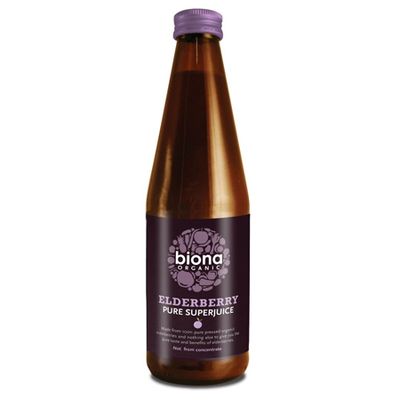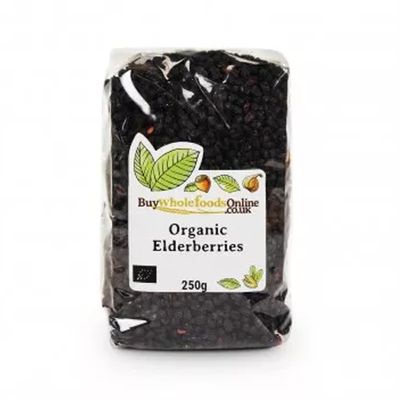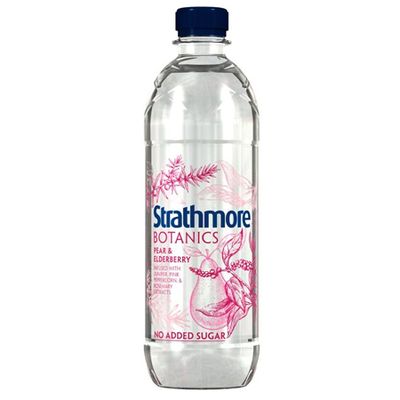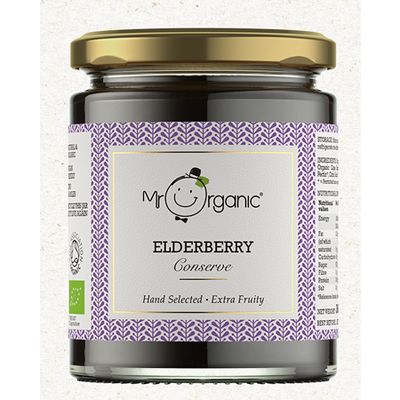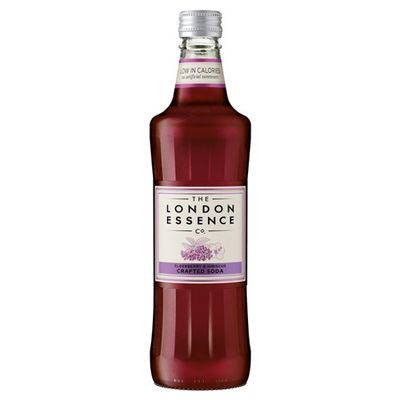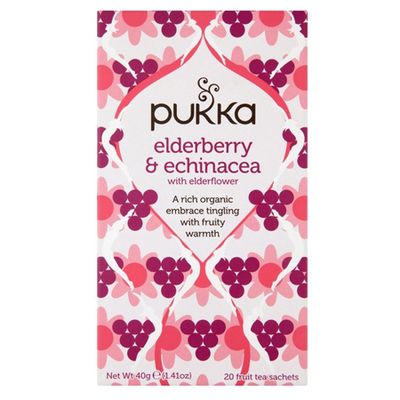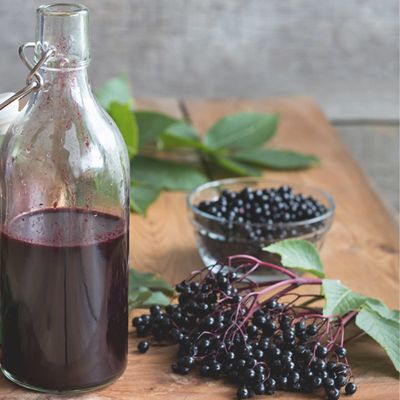
Elderberry: The Wise Old Berry
We’ve heard of elderflower but what are elderberries?
In simple terms, after the elderflower in the early summer come the elderberries; these are small, sharp, fragrant berries that are very versatile in both food and drink.
Tell us about their nutritional benefits.
Elderberries are high in antioxidants, proven to lower cholesterol, to improve vision and to boost the immune system. Bioflavonoids and other proteins in the juice destroy the ability of cold and flu viruses to infect a cell. They're also mood boosting and, crucially, delicious. Some herbalists put black elder flower on the list of most effective herbs used for treating hay fever-like symptoms and bacterial and viral infections, such as coughs, flu and tonsillitis. They're also mood boosting and, crucially, delicious. Finally, they are known to act as diuretics for some people, so if you are already struggling with kidney problems, then elderberries may exacerbate them.
How do you prepare the berries?
Since most of the berries in the flowering plant are toxic, so cooking the elderberries before eating is an absolute must. The branches, leaves, and twigs of all species contain trace elements of cyanide, which can build up in your body and eventually kill you, so be careful! Considering that so few species are edible, don’t pick wild elderberries and it is always wise to find elderberries in a licensed and reputable store.
Do you need to cook them or can they be eaten?
Elderberries in their raw state are in fact poisonous. You MUST cook them. They have a sharp, tart flavour that makes them a good choice for desserts, syrups, jams, jellies, spreads and the base for various cocktails and beverages. Adam Smith at Coworth Park, suggests “adding elderberries to an apple or pear crumble is a great way to make a classic more exciting. An elderberry and red wine chutney is also a lovely way to preserve their flavour, served with a cheese board. While elderberry jam makes a delicious alternative to classic strawberry, spread on top of a sour cream tart for an amazing taste.”
And what about in drinks?
Elderberry cordial, flavoured water and wine is a very popular way to introduce the flavour. In fact, elderberry juice was used to treat a flu epidemic in Panama in 1995.
Three chefs reveal the simple ways to introduce elderberries into your cooking…
Peter Joseph, Head Chef at Kahani, says,
“In their raw form, Elderberries are quite sharp so they’re best cooked and incorporated with other flavours to balance the tartness and bring out the best in them. They’re particularly delicious when spiced with cinnamon and cloves but of course an Indian chef would say that! I gently simmer them with spices and use the compote to drizzle over both desserts and gamey meats. They also make a lovely addition to drinks. Our bar team at Kahani in Chelsea cook the berries with sugar to make a syrup and sieve it - the sweet-sharp taste of the liquid is great in cocktails.”
Peter Hall, chef and owner of Lorne suggests,
“At Lorne we definitely make the most of the elderberry season. We make cordial, vinegar, kombucha, as well as using the fresh berries on desserts. They are similar to blackberries but have their own unique flavour profile, slightly more sour and tart. We add elderberries to lots of our desserts. Simply put them in a pan with a little caster sugar and they will pop giving you the most delicious juice, we then use that to make gels, jellies or ice creams.
It’s not solely used for dessert either, elderberries work amazingly with meat, especially game. We pickle elderberries and put them into our game sauces in the winter. Elderberries with grouse, venison or pigeon work fantastically well.”
Elderberry Gin from Richard Bainbridge’s restaurant Benedicts, Norwich,
"You’ll need a large Kilner jar and cheesecloth."
Ingredients:
500g washed elderberries
700ml gin
200g sugar
Lemon peel of half a lemon
Orange peel and zest of half an orange
A little chervil and thyme
Method:
Place all together in the kilner jar and shut the lid and place in a cool dark place
Every other day shake and turn the kilner jar to help the sugar dissolve
Leave for 6-8 weeks (no more than 10 weeks)
Strain off the elderberries, peels and herbs through a cheesecloth or muslin and bottle-up
Top Tip: You could use the leftover berries on top of a vanilla ice cream to make a beautiful boozy elderberry ripple ice cream.”
But if you’re not a cook, place these in your next food shop
Henrietta Norton, nutritional therapist and founder of Wild Nutrition. For more information visit Wild Nutrition.com
DISCLAIMER: We endeavour to always credit the correct original source of every image we use. If you think a credit may be incorrect, please contact us at info@sheerluxe.com.
